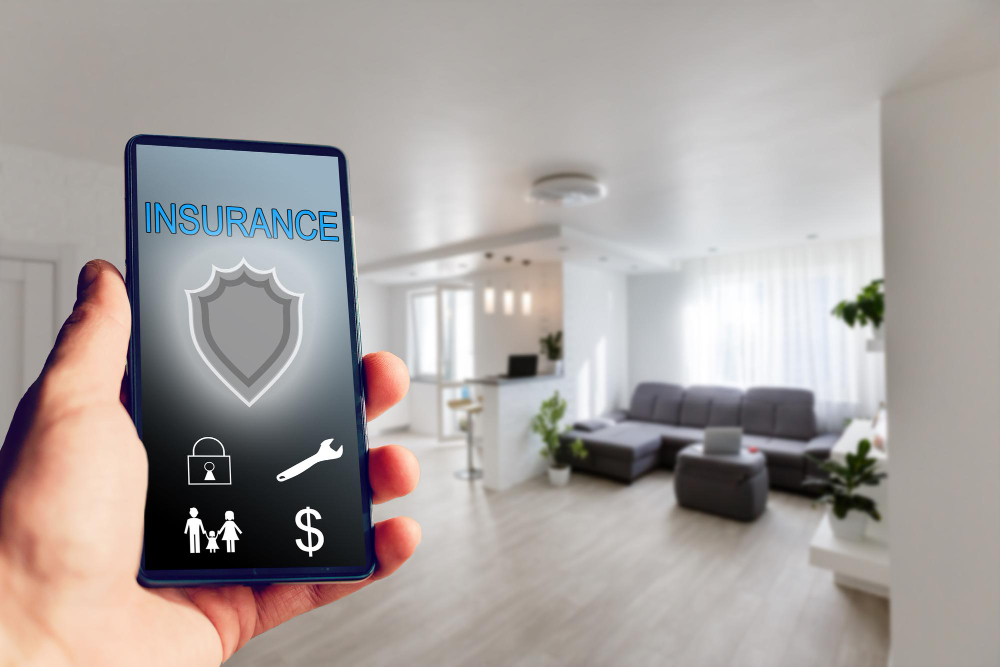How Smart Home Insurance Is Redefining Property Protection
Discover how smart home insurance leverages connected devices to enhance safety, reduce risks, and lower premiums.
Smarter homes deserve smarter protection. Pay attention to these tips!
In the age of connected living, homes are evolving beyond bricks and mortar. Smart thermostats, doorbell cameras, leak detectors, and voice-controlled assistants have changed how we interact with our spaces.
This evolution isn’t just about convenience — it’s reshaping how we think about home insurance. Smart home insurance is an innovative policy model that adapts coverage and pricing based on real-time data from smart devices.
If you’re upgrading your home with technology, it’s time to consider insurance that’s just as intelligent.

What Is Smart Home Insurance?
Smart home insurance integrates smart technology into traditional home coverage. This means your insurer considers the data from connected devices when assessing risks, offering discounts, or responding to claims.
For instance, a water sensor that alerts you to leaks can prevent costly damage. Insurers reward that kind of risk reduction with lower premiums or deductible advantages.
It’s not about surveillance — it’s about prevention, efficiency, and faster service.
How Smart Devices Improve Protection
The primary appeal of smart home insurance lies in how it leverages technology for proactive safety. Here are some key examples:
- Security cameras reduce theft risk and assist in claims with recorded evidence.
- Smoke and carbon monoxide detectors send alerts before dangers escalate.
- Smart thermostats can prevent pipe bursts by managing temperature.
- Leak sensors detect water problems early, minimizing damage.
These devices create a digital safety net, empowering you and your insurer to act fast.
Savings Through Risk Reduction
One of the standout benefits of smart home insurance is potential cost savings. Since smart devices decrease the chances of damage or loss, insurers often pass those savings on to you.
You might receive:
- Discounts for having qualifying smart devices installed
- Lower premiums over time based on reduced claims risk
- Credits for real-time alerts that prevent accidents
Some insurers even offer free smart devices to policyholders to encourage adoption.
How Claims Get Smarter
Filing a home insurance claim can be time-consuming, but smart devices simplify the process. With video footage, sensor logs, or automatic alerts, you have digital proof that supports your claim.
This means faster approvals and less back-and-forth with the insurer. In some cases, smart home data can even automatically trigger a claim or inspection.
It’s about reducing hassle and enhancing accuracy.
Data Privacy Matters
A common concern is data privacy. Smart home insurance relies on your data, but insurers must comply with strict privacy regulations.
Make sure your insurer is transparent about what data is collected, how it’s used, and who can access it. Ideally, you should be able to opt in or out of certain data-sharing features.
Always read the fine print, and don’t hesitate to ask questions.
Eligibility and Enrollment
Not all policies are smart-ready yet, but many insurers are moving quickly in that direction. To benefit, you typically need to:
- Have compatible smart home devices
- Share device data with your insurer
- Live in an eligible location
Some policies even tailor coverage dynamically based on your device performance, usage habits, or alert history.
What to Ask Before You Switch
If you’re considering smart home insurance, ask these key questions:
- What devices qualify for discounts?
- Will I need to share all device data?
- Are there any installation requirements?
- Is the policy dynamic or fixed-rate?
- What happens if a device fails to alert me?
These answers will help you find a policy that matches your lifestyle and comfort level.
The Future Is Smart and Secure
Smart home insurance represents a leap forward in protecting what matters most. It’s proactive, personalized, and data-driven. As smart devices become the norm, traditional insurance models will evolve to stay relevant.
Whether you’re tech-savvy or just starting your smart home journey, upgrading your insurance is a wise step. With added protection, potential savings, and less stress during claims, it’s a win for homeowners everywhere.





